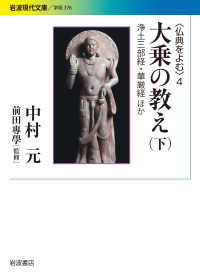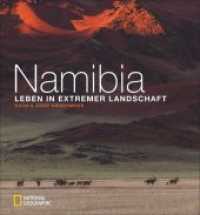- ホーム
- > 洋書
- > 英文書
- > History / World
基本説明
Williams break with historians who have long seen nature movements as anti-modern and irrational by arguing that naturists were calling not for Germany to turn back the clock, but for the nation to find a way ti navigate the treacherous waters of contemporary.
Full Description
Turning to Nature in Germany is a study of mass movements that aimed to bring the German people into closer contact with nature. In the early twentieth century organized hikers, nudists, and conservationists all looked to nature for solutions to the nation's political crises. Following these movements over three political eras—the Second Empire, the Weimar Republic, and the Third Reich—the book shows how manifestations of popular culture reflected the concerns and hopes of their time. Williams breaks with historians who have long seen nature movements as anti-modern and irrational by arguing that naturists were calling not for Germany to turn back the clock, but for the nation to find a way to navigate the treacherous waters of contemporary life and strive toward a brighter future.
Contents
Contents Acknowledgments Introduction: The Ideology of Naturism in Early Twentieth-Century Germany Part I Socialists and Nature 1 "The Body Demands Its Rights": The Workers' Nudist Movement 2 Social Hiking: The Naturfreunde Movement Part II: Youth Hiking 3 The Roots of Organized Youth Hiking: Wanderv'gel, Youth Cultivators, and Moral Panic, 1900-1915 4 Between Authority and Freedom: Youth Cultivation Through Hiking, 1916-1928 5 The Assault on Youth Hiking, 1929-1940 Part III The Conservation Movement 6 From Preserving to Planning Nature: The Bourgeois Conservationists Conclusion: The Cultural Appropriation of Nature from the Kaiserreich to the Third Reich List of Abbreviations Notes German Archives and Periodicals Consulted Bibliography Index








